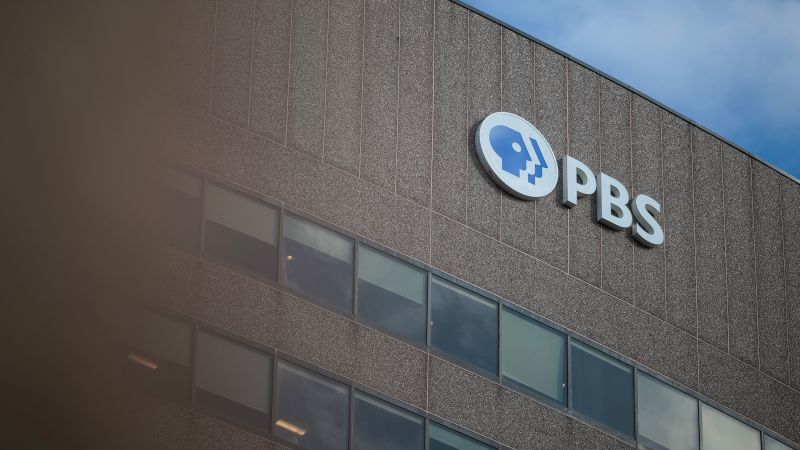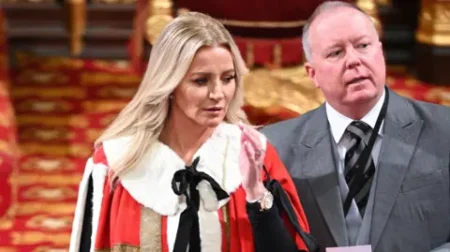In a significant political move, the U.S. Senate took a decisive step in the early hours of Thursday by passing a bill that eliminates all federal funding for public broadcasting networks, specifically targeting the Public Broadcasting Service (PBS) and National Public Radio (NPR). Paula Kerger, the CEO of PBS, conveyed the gravity of this situation by stating that public television stations would be compelled to make difficult decisions in the face of such drastic cuts. The implications of the Senate’s decision could fundamentally alter the landscape of public media in the United States.
The fallout from this legislative decision may lead radio and television stations, particularly those in smaller markets, to face potential layoffs and significant reductions in programming. Iconic children’s shows such as “Daniel Tiger’s Neighborhood” might find themselves reaching fewer viewers, while the beloved character Big Bird, known from the classic children’s series “Sesame Street,” may continue to be a staple but find itself devoid of the robust financial support that has historically ensured its presence. Notably, this bill’s passage implies that the Corporation for Public Broadcasting’s budget is expected to be completely eliminated for the first time since its inception in 1967, a time when television was still predominantly black and white.
This action is viewed as a significant victory for President Trump, who has consistently voiced allegations of bias within PBS and NPR’s newscasts. For many local stations, particularly those that heavily rely on taxpayer support, this bill represents a source of considerable concern and disruption. Although the overall impact remains uncertain, public media executives have expressed a belief that many smaller broadcasting stations may ultimately be forced off the air due to the funding void.
The nature of media funding reveals that stations in rural regions and smaller communities tend to depend more heavily on federal subsidies. This contrasts with larger market stations, which typically benefit from a broader spectrum of funding sources, including viewer donations and foundation support. Advocates for public media contend that the entire framework of noncommercial broadcasting will weaken without taxpayer backing, ultimately leading to a reduction in the production of original programming and local news coverage. Kerger emphasized that these cuts would not only affect all public stations but would be particularly detrimental to smaller outlets and those serving primarily rural populations, as these stations provide indispensable access to unique local programming and critical emergency alerts.
Amidst the controversy, two Republican senators, Lisa Murkowski and Susan Collins, dissented from their party’s majority, emphasizing the value of the public media system despite their own critiques of perceived biases in certain NPR broadcasts. In stark contrast, most Republicans expressed concern primarily regarding issues of bias, arguing that public media is outdated, especially in the current era dominated by streaming services. David Bozell, president of the Media Research Center, celebrated this action as a momentous rollback of what he perceives as outdated and biased media coverage.
The critiques against public broadcasting often reflect a misunderstanding of its offerings, as public media officials assert that the accusations of partisanship are exaggerated. For instance, an NPR segment broadcast on “Morning Edition” was described as neutral while addressing the implications of the funding cuts, with hosts clarifying that organization management had no editorial influence over the news reporting.
A revealing statistic from NPR CEO Katherine Maher highlighted that nearly three-quarters of Americans rely on their local public radio stations for essential news and alerts for their safety, presenting NPR as a critical lifeline for communities. In opposition to the Senate’s action, America’s Public Television Stations, an advocacy organization, contended that this rescission defies public sentiment, referring to polling data and the recent congressional allocation of funding for the upcoming fiscal period.
Looking back, when the Corporation for Public Broadcasting was established in 1967, Congress recognized the essential role of noncommercial radio and television in serving educational and cultural purposes. Shows like “Sesame Street” and “Antiques Roadshow” emerged from this initiative, which had historically benefited from bipartisan support. Over the years, various proposals to reduce funding from previous Republican administrations had been disregarded, but the current administration led by Trump has taken a more aggressive stance in attempting to eliminate such financial support.
Trump capitalized on earlier budget discussions and made it clear that cutting federal backing for NPR and PBS was a priority. He characterized the recent bill passage as a fulfillment of long-promised objectives, asserting that previous Republican administrations had failed to act on their commitments to cut funding.
As local stations begin to adjust, actions taken by New York’s NPR station WNYC show proactive measures in response to federal funding risks. Its CEO, LaFontaine Oliver, announced his transition to an executive chair role focusing on developing new funding models outside federal support. Meanwhile, the KQED network in San Francisco announced staff layoffs amounting to around 15 percent, citing the financial distress stemming from the uncertainty of federal funding. In light of these developments, Kerger reassured that despite these setbacks, public media organizations are committed to continuing their fight to conserve essential services and programming that resonate with the American populace.











